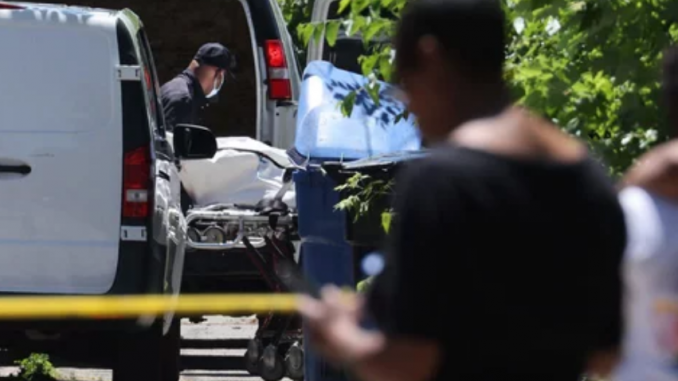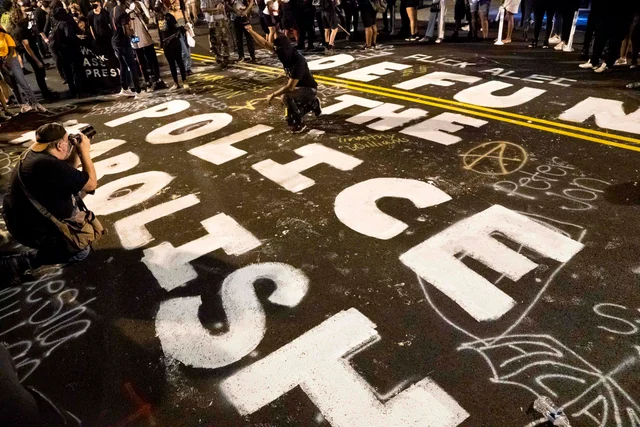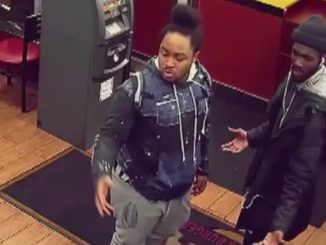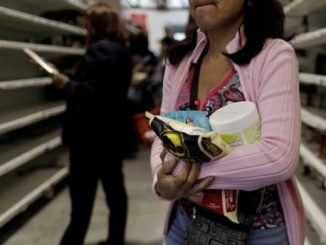
The number of homicides in six major cities across the country has increased compared to last year, disproportionately affecting black people, according to crime data.
Black people have represented a massive share of murder victims in six major cities through the first six months of 2021 compared to last year, which itself saw a large crime surge, according to data analyzed by the Daily Caller News Foundation. The DCNF analyzed both police department data and homicide reports compiled by local news outlets to determine how black people have been victimized in the wake of the 2020 crime spike.
“We are seeing an uptick in violent crime across the country, specifically gun violence,” Miami-Dade County Mayor Daniella Levine Cava told The New York Times earlier this month.
The DCNF collected homicide data from Chicago, Baltimore, Milwaukee, Pittsburgh, Los Angeles and Indianapolis, some of the only cities in which such data is readily available. Most major cities have limited statistics tracking 2021 murders and homicide victims.
The percentage of murder victims in Chicago that were black increased from 70% in 2020 to 81% in 2021 while that figure increased from 60% to 90% year-over-year in Milwaukee, the data showed. In one of the cities analyzed, the percentage of black victims decreased, but the raw number of black victims still increased.
Democratic leaders of most of the cities examined voted to greatly reduce police funding amid widespread Black Lives Matter protests last year. In the wake of the death of George Floyd, who died after former Minneapolis police officer Derek Chauvin kneeled on his neck in May 2020, thousands of protests and riots took place across the country.

University of Missouri criminologist Richard Rosenfeld blamed the uptick in violence seen nationwide on the lack of trust between police and citizens, according to the NYT.
“When police legitimacy is greatly reduced, you get more crime because people are no longer relying on the criminal justice system for assistance,” Rosenfeld told the NYT. “People are less willing to cooperate with police in investigations, less willing to report crimes or other problems to the police and more willing to take matters into their own hands.”
While murder statistics in just six cities were analyzed, the number of homicides has spiked roughly 18% across the country compared to 2020, according to a random sample of 37 cities, the NYT reported. In 2020, the number of murders increased by 36.7% compared to 2019, according to data analytics reporter Jeff Asher.
Chicago, Illinois
At least 317 total homicides were committed in Chicago between Jan. 1, 2021 and June 22, 2021, according to a Chicago Sun-Times database. In that same period last year, 295 murders were committed.
While black people represented 207 of the murder victims in Chicago through the period last year ending on June 22, 2020, they represented a whopping 257 of the victims this year, according to the Sun-Times database. That means black people have been the victims of roughly 81% of murders this year while they were the victims in about 70% of 2020 murders.
Meanwhile, Democratic Mayor Lori Lightfoot proposed an $80 million cut to Chicago Police Department funding in October, according to Injustice Watch.
“While we will slow the rate of growth, with a resulting $80 million in corporate fund savings, on my watch we will never make cuts or policy changes that inhibit the core mission of the police department, which is to serve and protect,” Lightfoot said, according to the Sun-Times.
Illinois became the first state to completely abolish its cash bail system earlier this year, NBC News reported. The legislation laid out a new, stricter decision-making process for judges to determine if a person charged with a crime presents a threat.
“This legislation marks a substantial step toward dismantling the systemic racism that plagues our communities, our state and our nation and brings us closer to true safety, true fairness and true justice,” Democratic Gov. J.B. Pritzker said after signing the bill in February, according to NBC News.
Baltimore, Maryland
In Baltimore, black people represented 69 of the 152, or 45%, of total murder victims between Jan. 1, 2021, and June 17, 2021, according to a Baltimore Sun database.
While murder statistics between that same period in 2020 were unavailable, black people were the victims of 130, or 39%, of the 335 total homicides committed in Baltimore for all of last year, the database showed.
The majority of murder victims in 2020 and 2021 were listed without racial information in the Baltimore Sun database. Black people represented the vast majority of victims with their race listed.
But the Baltimore City Council agreed to cut $22 million from the city’s police budget in June 2020, according to the Baltimore Sun.
“I am proud to lead a City Council that took the first step to responsibly reduce Baltimore’s budget dependence on policing,” former City Council President Brandon Scott, who is now the city’s mayor, said after the vote, the Baltimore Sun reported. “This is just the beginning, and I intend to continue leading this process to redirect our public dollars and reimagine public safety in Baltimore.”
In March, Baltimore City State Attorney Marilyn Mosby, the city’s top prosecutor, announced she would no longer prosecute prostitution, drug possession or other minor offenses, NBC affiliate WBAL-TV reported.
After multiple shootings in a popular area of Baltimore earlier this month, 37 businesses threatened to stop paying taxes unless Scott addressed surging crime, according to Fox affiliate WBFF-TV. The business owners argued that allowing minor crime to continue leads to major violent crimes.
Democratic Mayor Brandon Scott speaks during a news conference on May 17 in Baltimore, Maryland. (Alex Wong/Getty Images)
Milwaukee, Wisconsin
The number of total murders increased in Milwaukee from 75 in the period between Jan. 1, 2020, and June 17, 2020, to 87 committed over that same period this year, according to murder reports compiled by the Milwaukee Journal Sentinel.
Black people were the victims of 79, or 90%, of the total murders this year, the database showed. While isolated victim data wasn’t available for the first six months of 2020, black people represented 74% of all murder victims in Milwaukee last year.
The Milwaukee Common Council approved a police budget cut in November that reduced the department by 120 officers, the Journal Sentinel reported.
“Although the proposed budget cut would undoubtedly impact the operations of the Milwaukee Police Department, we remain committed to working and engaging with our community, elected officials and public safety partners to ensure that all of our neighborhoods are safe, vibrant and livable,” the department said in a statement after Democratic Mayor Tom Barrett proposed the budget, according to the Journal Sentinel.
Pittsburgh, Pennsylvania
In Pittsburgh, black people made up 90% of murder victims between January and April, according to county data. In comparison, 60% of murder victims during the same time period last year were black.
There were 20 murders between January and April this year and 10 in that same period in 2020, according to Allegheny County. Data beyond April 31, 2021, hasn’t been made available.
The Pittsburgh City Council approved a police department hiring freeze in July 2020, according to WPXI-TV. The council also ordered the department to redirect 10% of the budget to social service programs every year.
The Pittsburgh Bureau of Police said the actions would “greatly impact” its ability to increase diversity within its ranks, WPXI reported.
Los Angeles, California
Between Jan. 1, 2020, and June 21, 2020, black people were the victims of 92 of the 272 homicides committed in Los Angeles County, which includes the city and surrounding communities, according to a Los Angeles Times database. In the same period this year, they represented 103 of the 315 total homicides.
The data showed that the share of black murder victims in the county has stayed level at around 33% year-over-year. However, the uptick in violence this year has caused at least 11 additional deaths in Los Angeles County’s black community compared to last year.
Hispanic people, who are the largest demographic group in the county, accounted for the majority of murder victims in Los Angeles County in both 2020 and 2021 while black people accounted for the second-highest number of murder victims, according to the database. Hispanic people were the victims of 50% of the murder victims between Jan. 1, 2020 and June 21, 2020, and 57% of the victims in that same period this year.
The Los Angeles City Council approved a $150 million cut to the city’s police department in July 2020, ABC affiliate KABC-TV reported. Democratic Mayor Eric Garcetti supported the massive budget cuts.
“It will take years to recover from that,” Los Angeles Police union spokesman Dustin DeRollo told the DCNF last summer. “And it will result immediately with less officers patrolling the streets.”
“What that means simply is longer response times to emergency calls,” he continued. “It means less time to do community-based policing like building relationships in neighborhoods. And it also will mean less ability to implement the training that everybody wants our officers to have.”
But, amid the increased violent crime, the Los Angeles County Metro unanimously approved a $36 million budget boost for transit police in March. Garcetti, who serves on the Metro’s board, voted in favor of the budget increase.
Indianapolis, Indiana
Black people represented 58 of the 98 murder victims in Indianapolis between Jan. 1, 2021 and June 1, 2021, according to a homicide database created by the Indianapolis Star. Last year, black people were the victims in 53 of the city’s 70 total murders.
While the percentage of homicide victims who were black decreased from 75% to 59% in that period, the number of total black homicide victims still increased, the data showed.
Democratic Mayor Joe Hogsett resisted calls for defunding the city’s police department budget last year, the Indianapolis Recorder reported. Instead, he proposed a $7 million police budget increase.
*story by The Daily Caller


